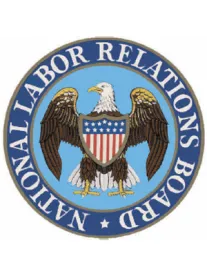The National Labor Relations Board (NLRB) has done it again.
Over the last few years, the NLRB has provided no shortage of topics for us to discuss, because it has made no secret of its aggressive agenda to expand employee protections under the National Labor Relations Act (NLRA), making rules and issuing decisions in furtherance of what seems like a thinly veiled agenda to benefit unions in their organizing efforts. Some of these actions have included upsetting decades of consistent precedent in ways that clearly favor unions. This time, the NLRB has departed from practices it has followed since the passage of the NLRA way back in 1935.
Employers may now be responsible for additional costs related to terminated employees’ job searches. In yet another decision where members have split based on political party affiliation, the NLRB has tossed aside more than eight decades of consistency. The NLRB significantly revamped its back pay formula to find that employers can be responsible for the job searching and related costs of employees found to have been terminated by an employer in violation of the NLRA.
The NLRB’s departure from more than three quarters of a century’s rulings centered on a goal of providing a “make-whole” remedy for unlawfully terminated workers. These workers have a duty to mitigate their earnings losses in the form of job searching efforts. Until now, when unlawfully terminated employees sought reimbursement for interim work and job search expenses, that amount would be offset from whatever the employee’s interim earnings were, and in simple terms, these expenses could not exceed the employee’s interim earnings. Additionally, any payments the employee was awarded have traditionally been lumped into taxable net back pay, even though search-for-work and interim employment expenses are non-wage components of back pay.
Under the NLRB’s reinvented rule, search-for-work and interim work expenses will now be treated independently and not be limited by any interim earnings. In other words, unlawfully terminated employees will be entitled to the full costs of these expenses, and employers will be liable for them. Of course, these costs are still subject to proving the expenses were both reasonable and actually incurred. That all said, it remains unclear what effect this decision will have on future litigation. The NLRB even noted in its decision that “Board proceedings have rarely involved litigation over search-for-work and interim employment expenses.” Of course, what the NLRB declined to observe is that parties rarely litigate issues that have been settled for 81 years.




 />i
/>i
